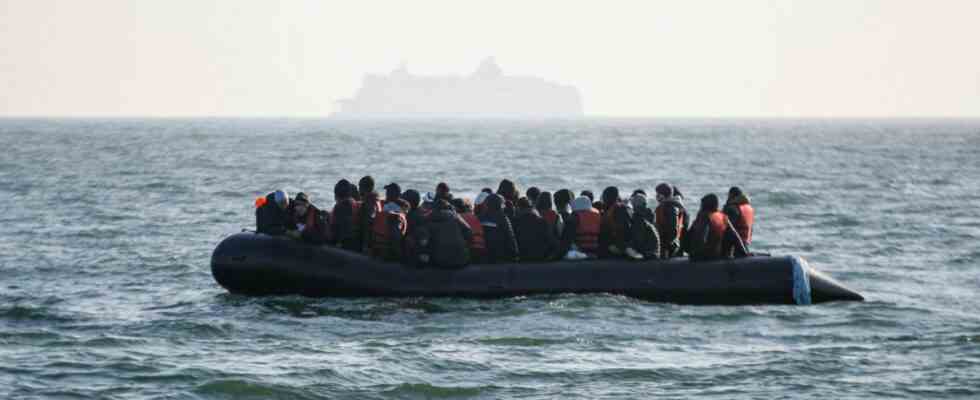Hundreds of thousands of people have fled to Europe from the Middle East and Africa this year. The often life-threatening passage can cost 7,000 dollars and more. An international group of investigators was recently able to arrest members of a smuggling gang in Belgium and Italy who brought illegal immigrants with forged diplomatic passports to Europe by plane. Cost per person: 20,000 euros. Smuggling is not only a dirty but also a lucrative business. International crime syndicates make over 100,000 people smuggling every year ten billion dollars, estimates the top international anti-money laundering body, the Financial Action Task Force (FATF). Its experts warn that smuggling is also financing international terrorism. Terrorist groups would demand tolls at their checkpoints on the African refugee routes.
With an action plan lasting several years, the EU wants to take tougher action against people smuggling. “The recovery of assets should also be improved,” according to the communication from the EU Commission. The syndicate revenues often flow through the international financial system to the rich industrialized countries, where straw people use them to buy up real estate, luxury goods and companies. In Germany, around 100 billion euros in criminal funds are laundered every year. The International Monetary Fund estimates that it is up to four trillion dollars worldwide – this amount corresponds to the fourth largest economy in the world. Human smuggling, along with drug and arms trafficking, is just one area of organized crime whose proceeds are laundered.
“Even when it comes to smuggling, you have to follow the money trail,” says the chairman of the customs police union, Frank Buckenhofer. He refers to boats that have been seized, some of which have high-quality outboard motors, and the trucks that are used to bring people to the coast. “Who bought these goods, who delivered them, who paid for them and where does the money come from?” says Buckenhofer. Experienced financial investigators in the EU would have to find that out together. “But German and European politics don’t give them enough staff and investigative rights.”
Germany’s fight against money laundering is insufficient. In this year’s report, the FATF inspectors criticized the confusion of competences of more than 300 authorities, saw deficits in the monitoring of cash smuggling and complained that too little was being done to investigate the financial transactions of criminal syndicates. For comparison: In Italy, between 2015 and 2019, the authorities confiscated criminal assets worth 18 billion euros – in Germany it was 338 million euros, according to calculations by the Antifinancialcrime.org blog.
Interpol detective Salvador Briseno told an FATF conference about a convicted drug dealer. He said: “I’m doing my prison sentence in a headstand because I know that when I get out, the money will be waiting for me.” Briseno demands: “The gangs are in business because of the money, you have to take it away from them.”

